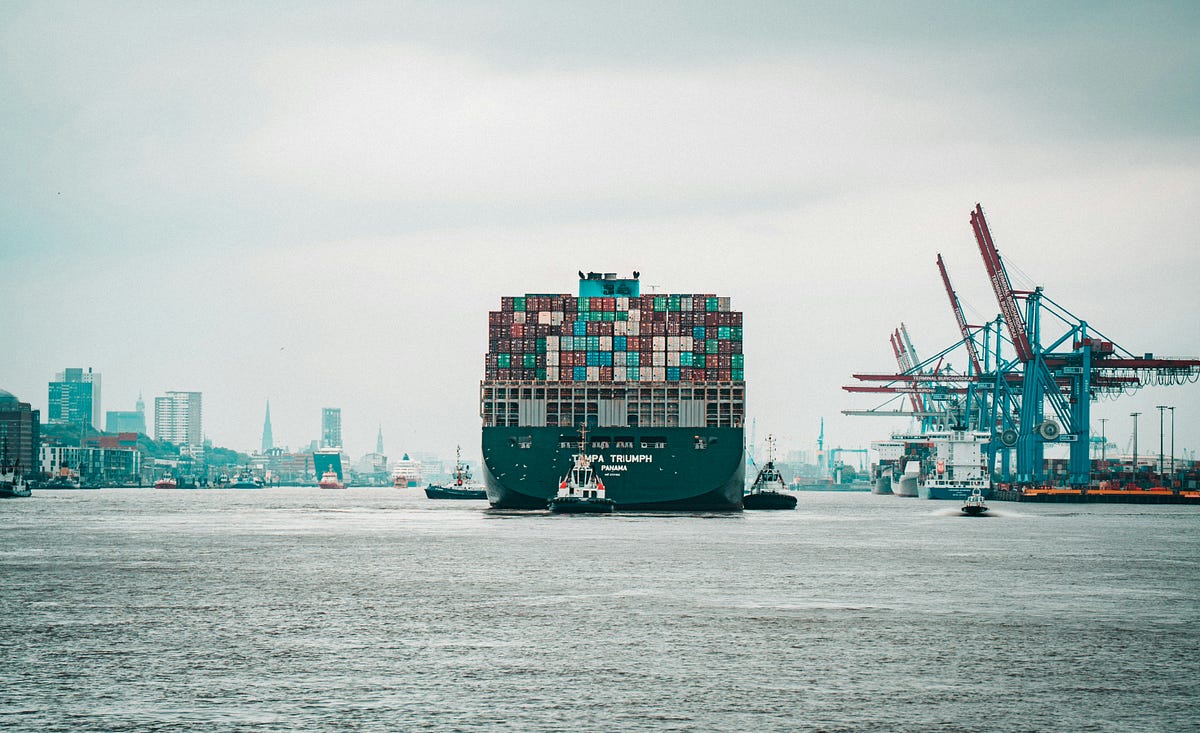The journey of supply chains from traditional systems to digital powerhouses has been nothing short of revolutionary:
- 1970s: Introduction of barcoding technology, transforming inventory management and tracking.
- 1990s: Emergence of Enterprise Resource Planning (ERP) systems, centralizing business processes and enhancing operational visibility.
- Internet era: Revolutionized connectivity, enabling real-time data access and seamless communication across supply chain networks.
The Internet of Things (IoT) has elevated supply chains by enabling organizations to gather vast amounts of real-time data, enhancing decision-making and operational efficiency. Meanwhile, artificial intelligence (AI) technologies are being increasingly employed to analyze supply chain data and optimize logistics. These advancements have collectively led to the creation of intelligent supply chains that are agile, resilient, and capable of meeting the ever-evolving demands of the consumer market.
The shift from linear supply chains to digital supply chains marks a significant departure from traditional supply chains logistics models. Linear supply chains, characterized by their sequential nature, often lack the flexibility needed to respond to modern market demands. In contrast, digital supply chains operate as interconnected ecosystems, providing end-to-end visibility and enabling real-time adjustments across the supply chain network. This transformation has resulted in enhanced supply chain efficiency, resilience, and the ability to quickly adapt to supply chain disruptions.
Supply chain leaders who embrace digital transformation are reaping the benefits of increased supply chain visibility and improved supply chain processes.
Cloud Infrastructure: The Backbone of Agile Supply Chains
In the realm of modern logistics, cloud infrastructure stands as the backbone of agile supply chains. Cloud-based systems enable:
- Real-time inventory tracking
- Dynamic rerouting
- Predictive analytics These features ensure that supply chain operations remain efficient and responsive. Companies like DHL have integrated digital tools for global shipping operations, including services like commodity classification for streamlined exports, showcasing the practical applications of cloud technology in enhancing supply chain efficiency.
The scalability offered by cloud technology allows supply chain resources to be adjusted according to current market demands, providing unparalleled flexibility. Furthermore, cloud-based systems facilitate seamless collaboration among supply chain partners, enabling real-time communication and data sharing across the entire supply chain. This level of connectivity is crucial for maintaining supply chain resilience and ensuring that all stakeholders are aligned in their operations.
Predictive analytics supported by cloud computing plays a pivotal role in supply chain management by:
- Enabling better forecasting of demand and proactive adjustments to supply chain processes.
- Automating inventory management through cloud tools, which helps businesses avoid stockouts by triggering automatic reorders at set thresholds.
- Improving supply chain efficiency.
- Reducing the risk of supply chain disruptions.
These capabilities ensure a smooth flow of goods from production to the customer.
The adoption of cloud platforms has streamlined logistics operations by automating tasks such as route optimization and compliance documentation, significantly reducing the administrative burden on supply chain teams. Advanced analytics capabilities provided by cloud solutions empower supply chain leaders to make informed decisions based on real-time data, ultimately driving continuous improvement and maintaining a competitive edge in the market through supply chain applications.
Data Intelligence and Predictive Logistics

The rise of data intelligence and predictive logistics has revolutionized supply chain management, enabling organizations to forecast demand, optimize delivery routes, and anticipate supply chain disruptions with unprecedented accuracy. AI predictive analytics harness historical data and machine learning algorithms to forecast future trends and events, providing actionable insights that drive supply chain efficiency. Organizations implementing these technologies have reported significant cost reductions and revenue increases, demonstrating the tangible benefits of AI-driven supply chain management.
Predictive analytics enhances inventory management by analyzing demand patterns, preventing overstock or understock situations. This capability is particularly valuable in industries with fluctuating demand, such as telecommunications, where accurate demand forecasting is essential to maintaining supply chain resilience. Companies like Maxx benefit from synchronized digital infrastructure, supporting global workforce mobility through roaming SIM-only plans, thereby highlighting the interconnected nature of modern supply chains and the importance of inventory optimization.
Real-time visibility provided by AI solutions allows businesses to anticipate disruptions and manage risks effectively, ensuring a smoother flow of goods and services. Understanding individual customer preferences through predictive analytics enables businesses to tailor their marketing strategies and improve customer experiences.
However, it’s important to note that the initial costs of implementing AI predictive analytics can be high, posing a challenge for many organizations. Regular updates are also necessary to avoid issues like overfitting and outdated predictions, ensuring the continued accuracy and forecasting accuracy of predictive models.
Industries across the board are reaping the benefits of predictive logistics, from telecommunications to e-commerce. By leveraging real-time data and advanced analytics, these industries can optimize their supply chain operations, enhance supply chain resilience, and stay ahead of market trends.
Compliance and Risk Mitigation in a Tech-Driven World
In the tech-driven world of modern supply chains, compliance and risk mitigation have become critical components of supply chain management. Navigating the complex landscape of legal, health, and safety requirements is essential to maintaining supply chain resilience and ensuring smooth operations. Legal guidance is particularly important for managing international operations and employee relations, with resources like family solicitors in Sydney providing invaluable support for companies facing cross-border legal complexities.
Occupational health and safety compliance is another vital aspect of supply chain management. In regions like Queensland, pre-employment screening, such as the Coal Board Medical
], ensures a fit-for-duty workforce, which is crucial for maintaining supply chain reliability in heavy industries. These measures not only protect the health and safety of employees but also mitigate risks associated with workforce disruptions, ultimately contributing to supply chain resilience.
Predictive analytics plays a significant role in continuous improvement and risk mitigation within supply chains. By analyzing data and identifying potential risks before they materialize, businesses can take proactive measures to mitigate these risks and ensure compliance with regulatory requirements. Emerging technologies like smart contracts offer additional layers of security and transparency, automating compliance processes and reducing the likelihood of human error.
The importance of data privacy concerns cannot be overstated in a tech-driven supply chain environment. As companies increasingly rely on digital systems and cloud-based technologies, safeguarding sensitive supply chain data becomes paramount. Ensuring data quality and privacy not only protects the organization from potential legal repercussions but also builds trust with customers and supply chain partners.
Tech Integration in Specialized Operations

The integration of advanced technologies in specialized operations has significantly enhanced supply chain efficiency and provided a competitive edge in niche sectors. In the maritime and underwater construction industries, technology integration is crucial for optimizing supply chain activities and ensuring smooth logistics operations. Providers like Harcan Marine utilize connected supply chain systems to:
- Coordinate resources
- Monitor weather conditions
- Perform remote equipment diagnostics showcasing the practical applications of technology in these specialized fields.
Innovations in logistics tracking for offshore operations have revolutionized the way supply chains operate in maritime environments. Real-time tracking systems enable precise coordination of resources, ensuring that all elements of the supply chain are aligned and functioning efficiently. This level of visibility is essential for maintaining operational efficiency and minimizing supply chain disruptions in challenging environments.
Advanced analytics capabilities further enhance the efficiency of specialized supply chains by providing actionable insights and optimizing operational processes. By leveraging data-driven decision-making, companies can identify areas for improvement and implement strategies that drive continuous improvement and cost savings. The integration of cutting-edge technologies in specialized operations not only enhances supply chain efficiency but also positions companies to maintain a competitive edge in their respective industries.
Emerging technologies like drones and autonomous vehicles are also being utilized in specialized operations, streamlining logistics processes and reducing labor costs. These innovations offer significant advantages in terms of operational efficiency and supply chain resilience, ensuring that companies can respond effectively to market demands and maintain their competitive edge.
In the maritime and underwater construction industries, technology integration is crucial for optimizing supply chain activities and ensuring smooth logistics operations. Providers like Harcan Marine, which offer commercial diving services, leverage connected supply chain systems to coordinate resources, monitor weather conditions, and perform remote equipment diagnostics. These capabilities highlight the importance of precision and agility in specialized environments, where the margin for error is slim and operational efficiency is paramount.
Last-Mile Optimization and Customer Experience
The final step of the supply chain journey, last-mile delivery, is crucial for ensuring customer satisfaction and building brand loyalty. As consumers increasingly prioritize delivery speed, companies must optimize their last-mile delivery processes to meet customer expectations and maintain a competitive edge. Technologies like cloud computing and IoT integration play a vital role in reducing friction at this critical stage, ensuring seamless communication and transparency throughout the delivery process.
Last-mile delivery optimization can significantly enhance customer satisfaction by ensuring timely and reliable deliveries. Key points include:
- Employing tracking systems and effective communication increases supply chain visibility, building customer trust and loyalty.
- Last-mile delivery can be particularly costly, sometimes accounting for more than half of the total shipping expenses.
- Companies are increasingly adopting innovative solutions like drones and autonomous vehicles to streamline last-mile delivery and reduce labor costs.
Micro-warehousing strategies involve setting up small fulfillment centers near urban areas to decrease delivery times and transportation costs. By positioning inventory closer to the end customer, companies can respond more quickly to market demands and enhance operational efficiency. Warehouse management, along with machine learning and artificial intelligence, is also used to analyze data for better route optimization and real-time tracking of deliveries, further improving last-mile delivery processes.
The link between upstream supply chain tech and downstream customer happiness cannot be overstated. By investing in advanced analytics capabilities and cutting-edge technologies, companies can optimize their entire supply chain, from production to delivery, ensuring a seamless and satisfying customer experience.
Conclusion
Technology is not merely a support function in supply chain management; it is a strategic driver of growth and resilience. Key benefits include:
- Integration of real-time analytics enhances decision-making speed and confidence, allowing teams to respond swiftly to emerging issues and maintain supply chain resilience.
- Enhanced coordination across different departments is achieved when supply chain teams operate with shared data.
- This coordination significantly improves execution and ensures a smooth flow of goods.
Real-time data sharing fosters greater resilience in supply chains by:
- Enabling businesses to adapt proactively to unforeseen challenges and maintain a competitive edge.
- Amplifying focus on customer experience through accurate tracking and communication regarding order statuses and inventory availability, enhancing supply chain efficiency and customer satisfaction.
- Allowing organizations that leverage advanced analytics tools to position themselves as more competitive and responsive in a rapidly changing market.
Businesses must audit their supply chain infrastructure and explore partnerships that offer digital advantages to remain competitive. The journey from cloud to customer requires ongoing innovation and alignment across logistics, compliance, and customer service. Investing in intelligent supply chains enables companies to achieve greater visibility, operational efficiency, and competitive advantage in the market.
In conclusion, the strategic value of a smart supply chain lies in its ability to drive business value, enhance supply chain resilience, and optimize customer experiences. The future of supply chain management is rooted in technology, and businesses that embrace this digital transformation will be well-positioned to thrive in an increasingly competitive landscape.
Frequently Asked Questions
What are the key benefits of cloud infrastructure in supply chain management?
The key benefits of cloud infrastructure in supply chain management include real-time inventory tracking, dynamic rerouting, and predictive analytics, which collectively enhance efficiency and resilience. This technology enables organizations to respond quickly to changes and optimize operations.
How does AI predictive analytics improve supply chain operations?
AI predictive analytics significantly improves supply chain operations by accurately forecasting demand and optimizing delivery routes, thereby reducing costs and increasing revenue while also anticipating potential disruptions.
Why is compliance important in modern supply chains?
Compliance is crucial in modern supply chains as it ensures adherence to legal, health, and safety standards, thereby mitigating risks and enhancing reliability. This ultimately safeguards the integrity of the entire supply chain.
What are some innovative solutions for optimizing last-mile delivery?
Utilizing technologies such as drones, autonomous vehicles, and micro-warehousing can significantly enhance last-mile delivery efficiency while lowering costs and improving customer satisfaction. These innovative solutions represent a forward-thinking approach to modern logistics.
How can businesses maintain a competitive edge in supply chain management?
Businesses can maintain a competitive edge in supply chain management by leveraging advanced analytics tools and investing in intelligent supply chains, which enhance visibility, operational efficiency, and customer satisfaction.





